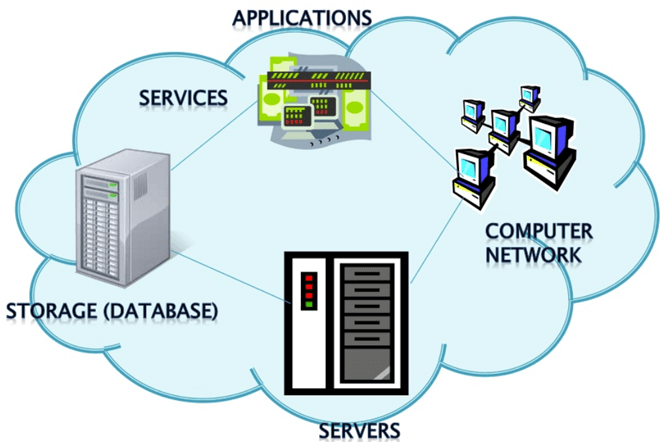Advantages and Disadvantages of Cloud Computing
Detectron2 – Object Detection with PyTorch
29th July 2023
What is PyTorch?
1st August 2023What is Cloud Computing?
Cloud computing is a term referred to storing and accessing data over the internet. It doesn’t store any data on the hard disk of your personal computer. In cloud computing, you can access data from a remote server.
Now, we will learn the advantages and disadvantages of Cloud Computing.
Advantages of Cloud Computing
Here, we will learn what are the benefits of Cloud Computing in your organization:

Cost Savings
Cost saving is one of the biggest Cloud Computing benefits. It helps you to save substantial capital cost as it does not need any physical hardware investments. Also, you do not need trained personnel to maintain the hardware. The buying and managing of equipment is done by the cloud service provider.
Strategic edge
Cloud computing offers a competitive edge over your competitors. It is one of the best advantages of Cloud services that helps you to access the latest applications any time without spending your time and money on installations.
High Speed
Cloud computing allows you to deploy your service quickly in fewer clicks. This faster deployment allows you to get the resources required for your system within fewer minutes.
Back-up and restore data
Once the data is stored in a Cloud, it is easier to get the back-up and recovery of that, which is otherwise very time taking process on-premise.
Automatic Software Integration
In the cloud, software integration is something that occurs automatically. Therefore, you don’t need to take additional efforts to customize and integrate your applications as per your preferences.
Reliability
Reliability is one of the biggest benefits of Cloud hosting. You can always get instantly updated about the changes.
Mobility
Employees who are working on the premises or at the remote locations can easily access all the could services. All they need is an Internet connectivity.
Unlimited storage capacity
The cloud offers almost limitless storage capacity. At any time you can quickly expand your storage capacity with very nominal monthly fees.
Collaboration
The cloud computing platform helps employees who are located in different geographies to collaborate in a highly convenient and secure manner.
Quick Deployment
Last but not least, cloud computing gives you the advantage of rapid deployment. So, when you decide to use the cloud, your entire system can be fully functional in very few minutes. Although, the amount of time taken depends on what kind of technologies are used in your business.
Other Important Benefits of Cloud Computing
Apart from the above, some other Cloud Computing advantages are:
- On-Demand Self-service
- Multi-tenancy
- Offers Resilient Computing
- Fast and effective virtualization
- Provide you low-cost software
- Offers advanced online security
- Location and Device Independence
- Always available, and scales automatically to adjust to the increase in demand
- Allows pay-per-use
- Web-based control & interfaces
- API Access available.
Disadvantages of Cloud Computing
Here, are significant challenges of using Cloud Computing:

Performance Can Vary
When you are working in a cloud environment, your application is running on the server which simultaneously provides resources to other businesses. Any greedy behavior or DDOS attack on your tenant could affect the performance of your shared resource.
Technical Issues
Cloud technology is always prone to an outage and other technical issues. Even, the best cloud service provider companies may face this type of trouble despite maintaining high standards of maintenance.
Security Threat in the Cloud
Another drawback while working with cloud computing services is security risk. Before adopting cloud technology, you should be well aware of the fact that you will be sharing all your company’s sensitive information to a third-party cloud computing service provider. Hackers might access this information.
Downtime
Downtime should also be considered while working with cloud computing. That’s because your cloud provider may face power loss, low internet connectivity, service maintenance, etc.
Internet Connectivity
Good Internet connectivity is a must in cloud computing. You can’t access cloud without an internet connection. Moreover, you don’t have any other way to gather data from the cloud.
Lower Bandwidth
Many cloud storage service providers limit bandwidth usage of their users. So, in case if your organization surpasses the given allowance, the additional charges could be significantly costly
Lacks of Support
Cloud Computing companies fail to provide proper support to the customers. Moreover, they want their user to depend on FAQs or online help, which can be a tedious job for non-technical persons.
Conclusion:
Despite all the Cloud Computing advantages and disadvantages, we can’t deny the fact that Cloud Computing is the fastest growing part of network-based computing. It offers a great advantage to customers of all sizes: simple users, developers, enterprises and all types of organizations. So, this technology here to stay for a long time.





